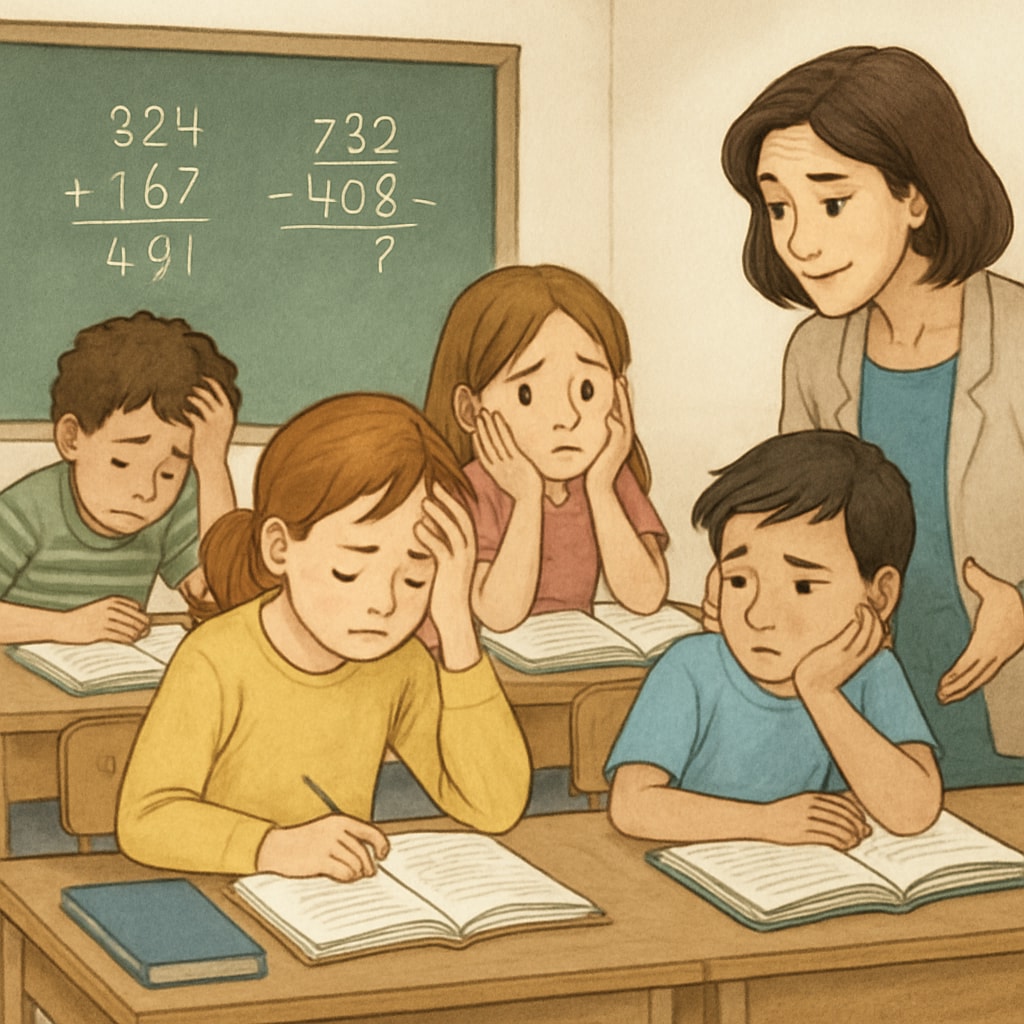The intense pressure of college applications is no longer confined to high school; it is now trickling down to first-grade students, creating unprecedented challenges and difficulties for young learners. From early academic rigor to extracurricular demands, children as young as six are beginning to feel the weight of expectations intended for teenagers. This phenomenon raises important questions about how society approaches education and its long-term effects on children’s mental health and personal growth.
The Burden of Early College Preparation
In recent years, the race for college admissions has become fiercely competitive, pushing parents and schools to start preparing students at an increasingly young age. First graders are being enrolled in advanced classes, specialized tutoring, and extracurricular programs tailored to build “college-ready” resumes. While these efforts are often well-intentioned, they place undue stress on children who are still in the critical stages of cognitive and emotional development.
Psychologists have warned that placing such expectations on young children can lead to anxiety, low self-esteem, and burnout. According to a study on childhood stress, early exposure to high-stakes environments may hinder a child’s ability to develop important life skills, such as creativity and resilience. Instead of fostering a love for learning, this approach risks turning education into a source of fear and pressure.

How College Application Stress Impacts First Graders
The long-term effects of this early pressure cannot be overstated. Here are some key areas where children are affected:
- Mental Health: Young children facing high academic expectations often experience anxiety, sleep disturbances, and emotional distress.
- Learning Experience: Overemphasis on structured learning can stifle curiosity and reduce intrinsic motivation to explore new topics.
- Personal Development: A focus on accomplishments over play and exploration may hinder the development of social skills and emotional intelligence.
For example, a six-year-old might spend hours in piano lessons or math enrichment classes, leaving little time for unstructured play, which is essential for holistic growth. As a result, their childhood becomes a checklist of achievements rather than a period of joy and discovery.
Building a Healthier K-12 Education System
To address these challenges, parents, educators, and policymakers must work together to create a more balanced approach to education. Here are some actionable steps:
- Prioritize Play: Encourage schools to allocate time for unstructured play and creative activities, which are crucial for emotional and social development.
- Focus on Holistic Growth: Shift the emphasis from academic achievements to fostering well-rounded individuals with emotional resilience and critical thinking skills.
- Educate Parents: Provide resources and workshops to help parents understand the importance of age-appropriate expectations and the risks of early academic pressure.
- Policy Reforms: Advocate for educational policies that emphasize developmental milestones over standardized testing and early academic competition.
In addition, schools can implement programs that support mental health and reduce competitive pressures. For instance, incorporating mindfulness activities into the curriculum can help children develop coping mechanisms to manage stress effectively.

Conclusion: Rethinking the Future of Education
As society continues to grapple with the demands of modern education, it is essential to recognize the harmful effects of early college application pressure on first graders. By focusing on mental health, holistic development, and age-appropriate learning, we can create an environment where children thrive both academically and personally. It is time to rethink our priorities and ensure that childhood remains a time of exploration, joy, and growth.
Ultimately, a healthier K-12 education system will not only benefit individual students but also foster a generation of well-rounded, resilient, and capable individuals ready to navigate the complexities of the future.
Readability guidance: This article maintains short paragraphs, uses clear transitions, and incorporates lists to summarize key points. Passive voice is minimized, and sentences are concise to enhance readability.


